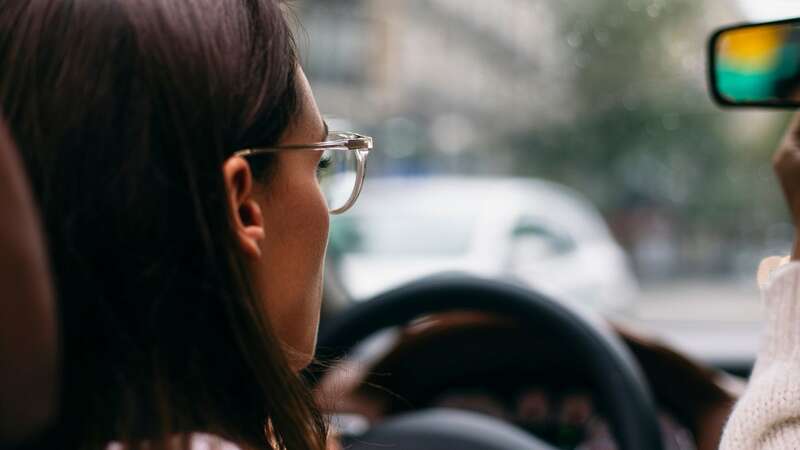
Drivers who make mistakes with their eyewear could be hit with a hefty £2,500 fine or even lose their licence. It's really important to see clearly when you're driving to keep everyone safe on the road.
But did you know that some vision-related mistakes can cost drivers a lot of money?
The car insurance experts at Compare the Market have made a list of penalties that drivers might get if they don't see properly. This is to help people avoid getting a big fine - or even going to jail, reports Wales Online.
Drivers could be fined up to £1,000 for wearing tinted glasses or lenses when it's dark
Highway Code: Rule 97. Penalty: Three points and a fine between £1,000 - £2,500.
 Drivers warned of Highway Code changes that could land them with £200 fine
Drivers warned of Highway Code changes that could land them with £200 fine
Drivers need to think about what they're wearing, including sunglasses, to make sure they can drive safely. If you wear sunglasses when it's not sunny, it can make it harder to see the road. This could lead to fines from £1,000 to £2,500 and you might even lose your licence.
If you have a crash because you can't see properly, you could go to jail for two years
Highway Code: Rule 92. Penalty: Up to two years in jail/unlimited fine and between three and 11 points.
Drivers are warned to keep their glasses prescription and eye health up to date to avoid going to jail for dangerous driving. If you don't look after your eyes or wear your glasses, you could end up in jail for up to two years if you have a crash.
If you need glasses but don't wear them, you could be fined £1,000 or lose your licence
Highway Code: Rule 97. Penalty: Three points and a £1,000 fine.
Drivers who don't have a clear view of the road could be fined between £1,000 and £2,500. It's really important for drivers who need glasses to wear them when they're driving to keep everyone safe.
If you put off getting your eyes tested, you could be fined between £1,000 and £2,500
Highway Code: Rule 92. Penalty: Three points and a £1,000 fine or you might not be allowed to drive.
If you don't get your eyes tested regularly, you could be fined a whopping £1,000 and might not be allowed to drive. Drivers need to make sure they get their eyes checked regularly to make sure they can see clearly when they're driving.
 Almost a million Brit drivers risk £1k fine every time they get behind the wheel
Almost a million Brit drivers risk £1k fine every time they get behind the wheel
Drivers can also be fined, or even go to prison, if they drive carelessly or without considering other people and they can't see properly. All drivers should be able to read a car number plate from 20 metres away. If a driver needs glasses to do this, they must always wear glasses with the right prescription when they're driving.
If you dazzle other drivers with your headlights or brake lights, you could be fined an unlimited amount or might not be allowed to drive
Highway Code: Rule 114. Penalty: Three to nine points and an unlimited fine.
If you use your full-beam headlights when you don't need to, it could make it hard for other drivers to see and you could be fined an unlimited amount. Drivers should only use their front or rear fog lights when it's really hard to see and turn these off as soon as they can see better. Drivers are being advised to avoid using their car brakes while stationary in traffic to reduce the blinding light seen by cars behind them. Instead, they should use the handbrake.
A noticeable increase in accidents caused by bright sunlight has been observed - from 2021 to 2022, the numbers rose a whopping 37 per cent. Thus, drivers should be cautious of being blinded by the sun.
Julie Daniels from Compare the Market's car insurance team shared this piece of advice for drivers: "For drivers, maintaining good eyesight is an essential part of following the Highway Code and ensuring safety on the road. The recommended frequency for eye tests is once every two years, though more might be necessary if advised by a medical professional.
"Keep clear vision by wearing your glasses or contacts if needed while driving and consider keeping a spare pair of these in your car for emergencies. Maintaining your vision is the key when taking to the roads as this is an essential tool for the safety of you and other road users."
Read more similar news:
Comments:
comments powered by Disqus
































